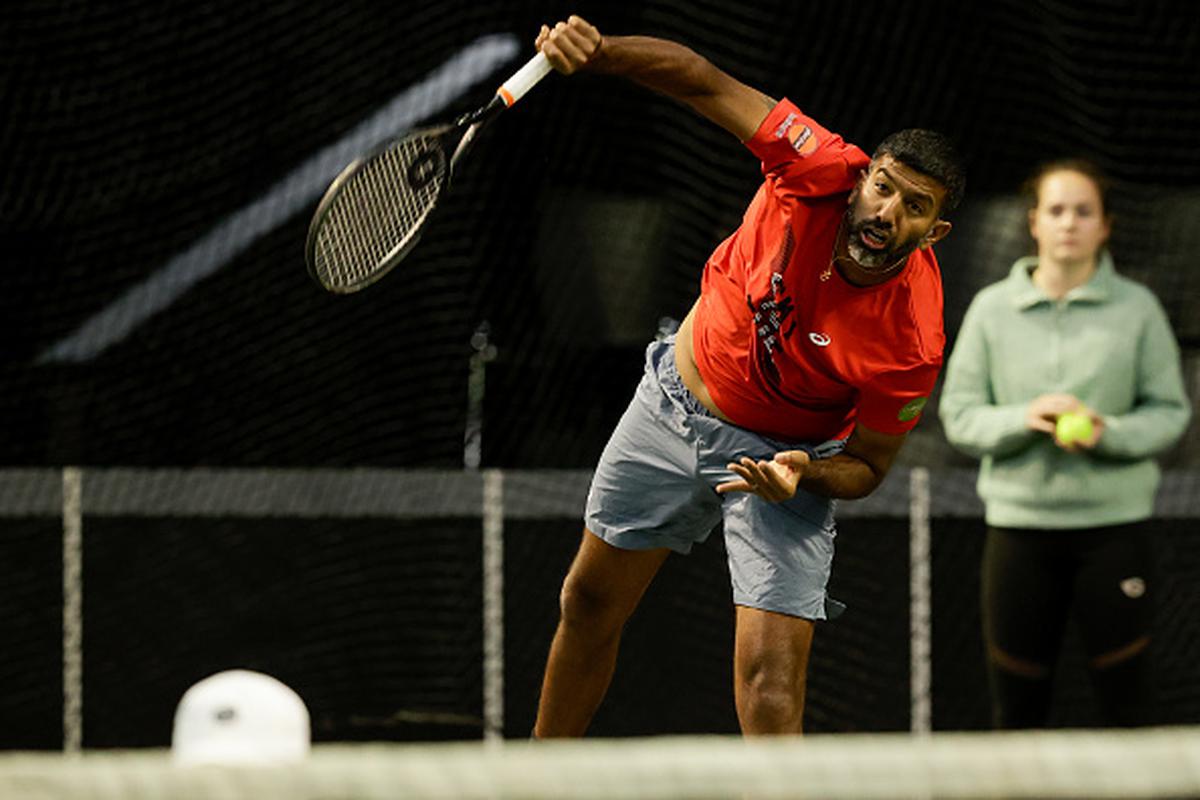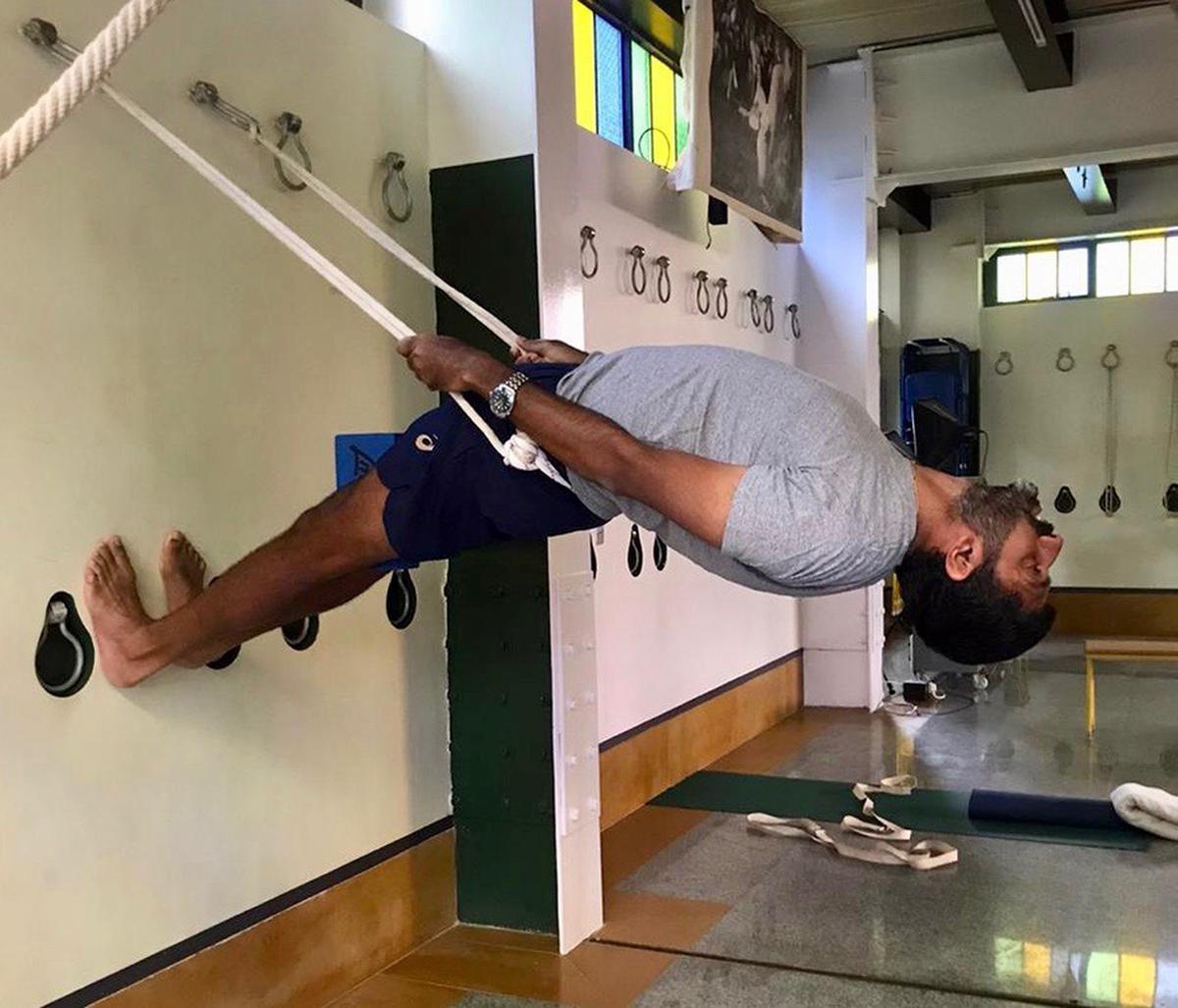I wanted to end my Davis Cup career on my terms: Rohan Bopanna
Elite sportspersons at the fag end of their careers are often like dying embers of a once raging fire. There are flashes of brilliance, but none of it sustainable. But Rohan Bopanna, at 43, has embarked on an astonishing self-restoration project. In 2023, he has won an ATP Masters title, reached a Major final and roared back into the doubles top-10 (currently ranked No. 11).
So much so that when he announced in June the decision to end his Davis Cup career after the tie against Morocco in Lucknow this September, it evoked surprise rather than indifference. In an interview with The Hindu, Bopanna speaks about his two-decade-long Cup career, the highs, the lows and his reason for walking away. Excerpts:
You are playing some of your best tennis at 43. What’s the secret behind your longevity?
The No. 1 thing is mental strength. It’s behind how I manage my body, train, recover and then compete at a high level. These days, I am focusing more on mobility, using a lot of therabands, doing some yoga and very little gym work. It takes almost 45 minutes to one hour before I even practise. This year I also invested in getting a physio on the circuit and that has helped me feel pain-free on court. Also, the experience of having played for 15-20 years certainly helps.

Age, just a number: Bopanna, who turned 43 this year, has had a season to remember, winning an ATP Masters title and reaching a Major final.
| Photo Credit:
Getty Images
How have you struck the balance between being a father, a husband and a full-time player?
I’m really happy with everything around me. The tennis academy is running well and my four-year-old daughter is able to travel and watch some live matches. It’s always a pleasure to have the family travel, especially when you are on the road 27-30 weeks a year and there is no work-from-home option. For our daughter, it gives a good perspective and a chance to engage with the world. That kind of relaxes my mind and I am able to constantly play better also. Yes, you have your coach and physio but at the end of the day they are also doing a job.
Tennis is more physical now and doubles all about reflexes, fast points. How have you kept pace?
Whoever I play with is younger than me. I am the oldest on the circuit, so that’s always a good start. But what has helped is my focus solely on my side of the game — to hit those spots on the serve and have that first strike. There are a lot of guys faster and way stronger than me. [But] I have been focusing a lot more on accuracy. It makes it that much harder for someone to return and then I try and play my aggressive style. So it is more about focusing on my side of the game and not really worry and say, ‘this mistake happened from my partner at this crucial time’. I look at it as, ‘Oh maybe, my serve was not good enough.’ The mind is extremely calm and I am not getting hurried or flustered at situations. The yoga I have been doing has helped not just my body but also the mind.
When you started in the early 2000s, Leander [Paes] and Mahesh [Bhupathi] had set the standards. How did that help you?
It definitely did. It gave me a goal. There is someone from your own country who has achieved and maybe you could find a journey similar to that. The biggest help was having Mahesh around, who I was able to speak to a lot on the circuit. In 2010, when [Aisam-ul-Haq] Qureshi and I had that breakthrough year of making quarters at Wimbledon and finals at the US Open…that kind of changed a lot. But travelling with Mahesh constantly in 2011, being in similar tournaments and hanging out with him, and then in 2012 playing with him. This helped me a lot.
Now, when you have been up there for a decade and a half, others have not taken advantage of that. Does that leave you a bit sad?
Yes. 100%. Extremely sad with the fact that Indian tennis has not really grown. There’s no structure in place and without a structure, it is difficult for anything to grow. I hope there is some change. Right now, in doubles, we have about 10 guys [11] in the top 200. Everybody is asking why we don’t have singles players. But I will say, ‘Who we have, we need to support.’
I was very disappointed when we lost the one ATP event we had [Tata Open Maharashtra]. Now that that’s gone, we need 20 Futures and 20 Challengers consistently for the next 15-20 years. We need to get tournaments [at the level] where our players are ranked. There is this great example of Ben Shelton from the United States. He made it to the top-100 without leaving the country. So let’s provide that opportunity to our players and then ask what happened. Without doing that, we are not moving ahead at all.

Bend it like Bopanna: The secret to Bopanna’s longevity is his success in managing his body — a focus ‘on mobility, using a lot of therabands, doing some yoga and very little gym work’ has worked for him.
| Photo Credit:
Special Arrangement
Which are your favourite Davis Cup memories?
In 2003, when we played Holland away, I played a long match against Martin Verkerk who had made the French Open final. He was 14 in the world. I lost a close fifth set [10-12]. The following day, when I walked on to the court, the crowd gave me a standing ovation. It was very early in my career, the second year of my Davis Cup journey. To get that much appreciation away from home…that’s a pure Davis Cup moment. Of course, the best was against Brazil [Chennai, 2010] when we came back from 0-2 to win and I won the fifth match. Another one was in China in 2018. We were 0-2 down and Leander and I won the doubles, 7-6 in the third set.
Do you have any regrets? Does the 2016 Rio mixed doubles semifinal defeat still rankle?
You have got to make peace with all the defeats. Yes, there were heartbreaks…the losses in the finals of Slams, that defeat at the Olympics. But I don’t think I would be fighting and playing for this long and pushing all limits if they [the defeats] were still in my mind. Even at the age of 43, to think that maybe there is a chance of playing another Olympics. Back in 2002 [after my debut for India], my dad threw a big party in Coorg. My parents wanted me to play for India once. If you had said that I was going to be around for 20 years, any parent would take it.
Finally, why walk away now? Considering you are still playing at a high level…
The No. 1 reason is that I will be replaced by another Indian. It will also give me an additional two weeks’ break to help the body that is taking a serious toll. Further, I didn’t know when the next home tie would be, especially with Davis Cup no longer regional. Leander and Mahesh deserved a home tie to retire at, but I don’t think they got that. In my case, I thought I could do it on my terms. I would have loved for it to have been in Bangalore. Now, I will push my family and friends to travel to Lucknow.
For all the latest Sports News Click Here
For the latest news and updates, follow us on Google News.
